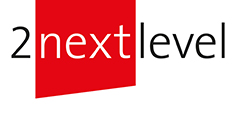Corona is turning our working world upside down. Many companies have had to change their working practices in a very short time. Some are already considering doing without expensive office space. Video conferences and home offices work after all. They alone do not make New Work.
People react differently to crises: some fall back into old patterns, others manage to break through into the new. It is wise to ask right now: how do we want to define and organise work in the future? We have spoken with many of our clients. Two experiences became clear. The crisis makes it easier to implement new rules and ways of working (“if you’re already in cold water, you might as well swim”). Organisations that set out before Corona are now clearly at an advantage in terms of speed and quality. Now is the momentum for substantial change: it would be a shame not to take advantage of it. New Work is a multi-faceted term. Not everything fits every organisation. Here is an attempt at an order.
# Work where and when you want
Forms of implementation in the direction of time and place flexibilisation and individualisation: part-time, 4-day week, trust-based working time, elective working time, sabbatical, teleworking, home office, job sharing, desk sharing, co-working spaces, …
# Meaning, vision, transparency
Forms of implementation in the direction of purpose/meaning/value orientation: initiatives around purpose, purpose-driven decision-making, value work, big picture – everyone knows the goal and can decide within its framework, transparent communication organisation,…
# Beyond hierarchical structures
Forms of implementation in the direction of agile/project-based structures, new power distribution/democratisation, participatory decision-making mechanisms, elected leaders, self-organisation, holocracy/sociocracy, ambidextrous leadership,…
# New collaboration/cooperation
Forms of implementation in the direction of internal and external collaboration within the company : gig economy and crowdworking, co-creation, interdisciplinary collaboration, design thinking projects), networks, team 4.0, new meeting formats,…
#Experimental attitude and lifelong learning
Forms of implementation in the direction of individualisation and modularisation: experimenting, trying out (“this is not for all eternity”), personal learning cloud, nudging, blended learning, module learning, error culture, start before you are ready, prototypes …
# Artificial intelligence, robotics and automation
Forms of implementation in the direction that functions, work processes are supplemented, expanded or replaced by AI/automation: Algorithms, chatbots, decision support with AI, machine learning (ML), …
The topic of New Work seems confusing in the first approach because of the many terms. The more important is a clear definition and the answer to the “WHY”.
(Artikel in: TrigonThemen 02/2020)



